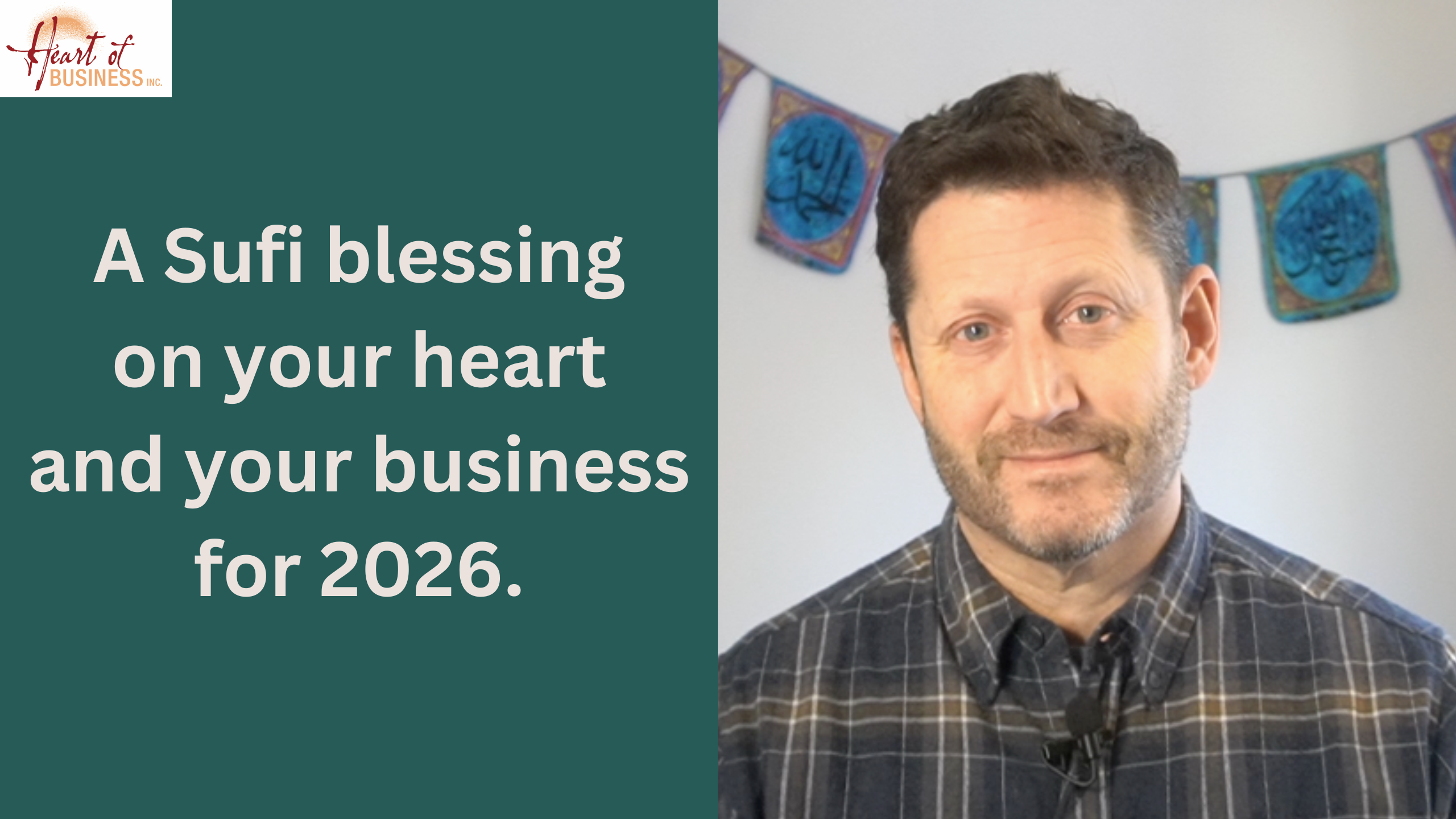Sometimes the world delivers up vocabulary words that are just plain wrong. Painfully wrong. Words like “branding,” which the world of marketing seems to love, but regular folks and cows just seem to hate.
And it’s because of how branding has often been used. Companies have done psychological studies on how to craft an environment that gets you to react in the way they want you to. It’s like herding cattle into the searing-hot iron–ouch.
Of course you don’t want to use branding. Why would you ever want to do THAT?
Is There Anything Redeeming About Branding?
When you take the manipulation out of it, branding isn’t that bad. It’s just a poor word choice to describe this: how a person experiences your business. And, it can be powerful. Let me give you an example.
After one of our Path to Profitability Retreats, we were discussing Starbucks in our marketing class. Starbucks which, despite recent stumbles, grew 14,000% in ten years. Yes, that’s not a typo–fourteen thousand percent.
What’s more, one of my clients admitted to preferring Starbucks over another coffee shop, even though she didn’t really like Starbucks’ coffee that much.
Shock. Amazement. She knowingly spent a couple hundred dollars a year at Starbucks, even though she didn’t really like Starbucks’ main product.
Why Such an Irrational Choice?
One word: “home.” Home? Yup, home. My client said that she preferred the “homey-ness” of Starbucks, how comfortable and dependable it was compared to this other place.
That is to say, you can be great at whatever it is you do, and clients that love what you offer may still avoid you. Huh? That doesn’t seem to make any sense. But it does if you understand branding.
But let’s not call it “branding.” Some macho, “business is war and war is hell,” person must’ve picked that word to describe what is, essentially, the job of a gracious host(ess). No need to be flinging the stuffed olives and salmon croquettes at anyone. Let’s pick a different word.
Let’s Call It “Worldview”
When you are in the business of making things better for people, no matter how you do it, you are helping to presence, to bring into being, a better version of the world. More love. More peace. More effectiveness. More connection.
Accounting, real estate, naturopathic medicine, consulting–whatever you do, you’re presencing a world.
So, it’s a good idea if all parts of your business help to presence that world. If the look, feel and how you deliver your invoices has a similar effect on your clients as your healing work, your world feels congruent to them, and they can fully rest into it.
When this happens, people feel safe. They feel at home. They feel as if they are stepping into the better world they are striving toward.
This is why you want to be clear about your worldview, and apply it to all aspects of your business. Because every single aspect of your business can be healing, and can play a part in supporting your clients.
If this seems abstract, let’s take a look at how this would work for you.
Keys to Applying Your Worldview
• How do your clients feel when they’ve gotten your best work?
When you are in the zone and you are delivering great work to your clients, how do they feel? What are some of the words they use to describe that feeling? Calm? Inspired? Jazzed? Rested? Relieved?
Identify three or four words like that.
• What’s the opposite of your best work?
Pick some aspect of your business that you avoid, dislike, or that just feels troublesome, which also touches your clients. For instance, billing, setting appointments, or your website.
What don’t you like about it? What are the three or four words you would choose to describe your experience with it?
• Transform the worst into the best.
Now, time to presto-chango shine up that troublesome part with the qualities of your best work. Should your invoices be on cool paper, with a fun font and graphic, and use friendly language? Should the door to your office be decorated differently? Would it be a good idea to replace that utilitarian notepad with something that reflects the better world?
Starbucks pays extreme attention to the decor in order to create that “homey” feel my client likes so much, and that attention to detail has skyrocketed their business. You may not be dreaming of 14,000% growth, or world domination (hopefully not), but the lessons here are real.
Pick one aspect of your business’ world at a time, and step-by-step transform it so that every part of you and your clients’ experience is helping to presence the world you are wanting to live in. Your clients will love it, feel safe and come back.
And your own Worldview?
Do you have one place in your business that you could change to reflect your Worldview?







9 Responses
Oh man, I *love* the word branding. I guess I’m just weird. =)
If you can look beyond the whole “corporate=evil” assumption, the feats that companies have accomplished with branding is incredible. Like Nike: if you go to their site, they don’t even use their name anymore, just the swoosh. Ditto with target.com. Now that’s frickin’ amazing.
Good/fun little books on the subject: The Brand Gap and Zag by Marty Neumeier.
I think – kinda like our recent discussion on spiritual language – that you gotta look beyond your immediate reaction to words like “branding” to get the juice of them.
I also prefer Starbucks to everywhere else, including my VERY close neighborhood coffee shop. Because it has nice chairs.
Tim Horton’s makes better coffee, but there’s no seating at the ones near me. The local coffee shop has seating, but it’s not comfortable and everybody’s clamoring for them like they’re playing musical chairs. Starbucks, on the other hand, has nice chairs.
That sounds like it’s a lot more of a practical argument than it really is. Comfortable seating is not just comfortable seating. It’s a company who clearly wants me to be there. The company enjoys my company. And that feels nice.
And while we’re talking about words we hate, how about “presencing”?
The word I like to use with the “branding”-averse is integrity. To me, branding is about presenting yourself so that every facet of interacting with you feels like part of an integral and integrated whole.
@Emma- you do? It is true that the associations created are incredible- and the concept, when implemented with integrity (as Stella points out) has amazing results.
I think it’s great to get beyond attachment to words. I think it’s also fun to work with creating a new vocabulary, don’t you?
@Naomi- See, it’s not the coffee, it’s the chairs! And, I agree, it goes beyond comfortable seating. Isn’t it amazing how small businesses can overlook the obvious?
Of course, it’s easier for ittybiz’s to overlook the obvious when they’re overwhelmed just trying to keep things going. Most don’t have an exec VP with a staff of hundreds to watch over those kinds of things.
And yet… and yet… we gotta.
@Stella. So you don’t like my little word “presencing”? 😉 I guess that means it’s either a total loser, or I’ve struck something that people may love. Who knows? Thanks for letting me know, though. How else would I?
Integrity is a great choice, I think for what it captures. And, do you think it carries enough weight, is enough of a separate concept to communicate clearly, and not be confused with something else?
@Mark
Hmm, I do like playing with new vocabulary – I also like to really understand what a word is before replacing it – because sometimes when you go into a word and what it means, you find that it has a pretty precise meaning that is useful. That’s how I feel about the word “branding”. It means something – and not what people often think it means, but something darn important to business.
Branding – I think it’s a little different than “worldview”. Branding, to me, is the visceral feeling someone has about your business. They may or may not really get your worldview – or care. And I bet 100-to-1 that if they think they have to adopt your worldview – or even *care* about your worldview – to do business with you, they’ll be outta there.
If you send them a nice thank-you gift for instance, they’ll feel warm and fuzzy – that’s part of your brand then, in their mind (if you are consistent about it anyway) – that warm fuzzy feeling. If you do something inconsistent with that, you’ll dilute that “brand”.
That really doesn’t necessarily carry over to the idea of worldview, which I think of as more abstract and philosophical. Branding isn’t abstract – it’s the real-world feeling people get from interacting with your business in any form whatsoever, from looking at an ad to browsing your website to talking to you on the phone. It’s the gestalt of YOU that they form in their head from all their different experiences. That might include some idea of your worldview – maybe – but I bet it’s mostly about your actions and how they felt in response.
OK, that’s done it. You’ve inspired me to go write a post about this on *my* blog. =)
@Mark
Hmm, yeah I just don’t have any pain at all associated with the word “branding”. It’s just a word, like “marketing” or “peanut butter”. Except that I’m excited about branding so I feel excited about the word too.
Here is what is important to me about this: there are lots of awesome books out there about branding. That use the word “branding”. So if you go to the business section and look up “worldview” you’re going to find bubkis. And small business owners, self-employed people – they need to go to the business section and look up branding! And learn stuff! And if you encourage this irrational hatred of the word “branding”, I feel like you aren’t doing them any favors.
People get these irrational fears by associating business concepts with the actions of a few huge companies. But there are so many, many small businesses that are using these same concepts to do awesome, beautiful, useful things in the world. So I don’t want to throw out that language – it’s specific, it has meaning, it is a set of tools, and it’s powerful. I’d rather people be encouraged to see through those “painful” associations and be more rational about it – and then use those tools to their advantage, to remake the world in the way they want to.
Then they might also rethink some of the other powerful things they’ve been avoiding because of associations. Power itself is not evil! Power is important! It’s important to know how to use it, so we can use it for good!
I have abolutely no association of the word with “cattle”. And I grew up on a farm! You personally may not like that word, but do you need to encourage other people to reject it when it’s a word that so much of the business world uses?
I also have no association of “branding” with “manipulation”. To me branding = authenticity. Just like marketing = authenticity. When people aren’t doing that, they aren’t really doing branding, they are doing manipulation or whatever. Call that what it is, but don’t punish the concept for how people use it.
It’s like, I don’t stop calling God God because there were the crusades. I don’t stop calling prayer prayer because there are people who pray for others destruction. I don’t stop calling peanut butter peanut butter if I happen to develop an allergic reaction to it, or somehow someone uses it to hurt me. It’s still what it is!
I guess I’d rather re-discover the heart of a word, and thus reclaim its power, than leave the negative (made-up) association and use a different word. Just like I’d rather heal the pain than find a coping mechanism. Healing reclaims power. Healing our associations with words reclaims the meaning and power of those words. It just feels like a more fundamentally powerful act. And if there is anything I believe in when it comes to small businesses and prosperity, it’s empowerment.
(Er…I hope you are reading my tone as enthusiastic, not mad. I get fired up about this stuff.)
=)
@Emma- Hmmm… I’ll go check out your blog- but I think you’ve gotten what I was saying wrong, or else I didn’t explain clearly.
We’re both using worldview and branding to mean the same thing. You can live within a worldview, or a ‘frame’ as george lakoff calls it, without being conscious of it at all. No one has to “adopt” anything. But, you experience it.
I still hold that worldview is a better word, because it describes a 360 degree experience, something that one is living in. The word “branding” does express a visceral experience, but a very specific one that has pain accompanying it. 🙂
Obviously, we can use any word we want. And, I think that the words we choose can sometimes help to define the experience. I don’t think it’s an accident that companies are trying to use branding to manipulate people psychologically, to try and “own” the customer, and “create” customer loyalty, through associative, psychological branding.
It invites that kind of ownership, own-the-cattle, kind of paradigm.
For me, worldview is about inhabiting a world together with others. The business doesn’t own the worldview, it’s merely expressing a world that already exists to some degree. it’s a shared space.
@Emma I love your enthusiasm- and I’m glad you’re being a branding evangelist.
I have to admit I’m not really worried about keeping people from finding books on branding through my use of the word “worldview.” 🙂
I love re-owning words, and finding the good juju in them. That’s fabulous. I also love finding words that better describe what I’m wanting to communicate.
I’m also sensitive to the fact that some people just don’t get, or like, the word “branding.” I didn’t, for years.
Sometimes education and learning have to come *after* safety and connection is established. You can be saying the most wonderful things about branding, and if someone has an avoidance of that word, they won’t read what you’re writing. “Ahhh.. that’s about that weird thing, branding. I think I’ll go clean the bathroom instead.” I’ve done just that plenty of times in my life. I’m not proud of it, but there you go.
If using a different word makes the concept more accessible to many people, that makes me happy. And I can let them know, after they approach, that “branding” is the word the world at large calls it. I’m sure they’ll then have a vocabulary healing, and be able to find the books they need.
As I said, I love your passion and glad you’re carrying the torch!
Yeah, as I wrote in my comment over on my blog, I think they are stages – finding your own words, and then reclaiming the existing words.
I want to encourage people to go all the way. To not settle for an uneasy truce with these words and concepts. But I get what you are saying, if they are not even to the first stage, they need the intermediate steps.
I guess it’s just that in finding new words, I don’t want to encourage irrational hatred/fear of existing business concepts because “evil corporations” use them. That’s cutting off your own legs.
I do worry about small self-employed folks not going to read business books out of irrational fear/hatred of “evil corporations”. I do want to address that fear and encourage self-education on all these topics.
I guess that’s why I mix both the woo-woo gentle words with the existing business words. To demonstrate that they really aren’t so scary.
And yeah, maybe we speak to different sectors of the population too. We’ll see. I’m still figuring out how to say what I want to say so people get it.
I’ll admit that I never really had a fear of business concepts or words. I had some ideas that were incorrect, some assumptions, that’s why it was so empowering for me to find out what they were really about.
Anyway. Good discussion.